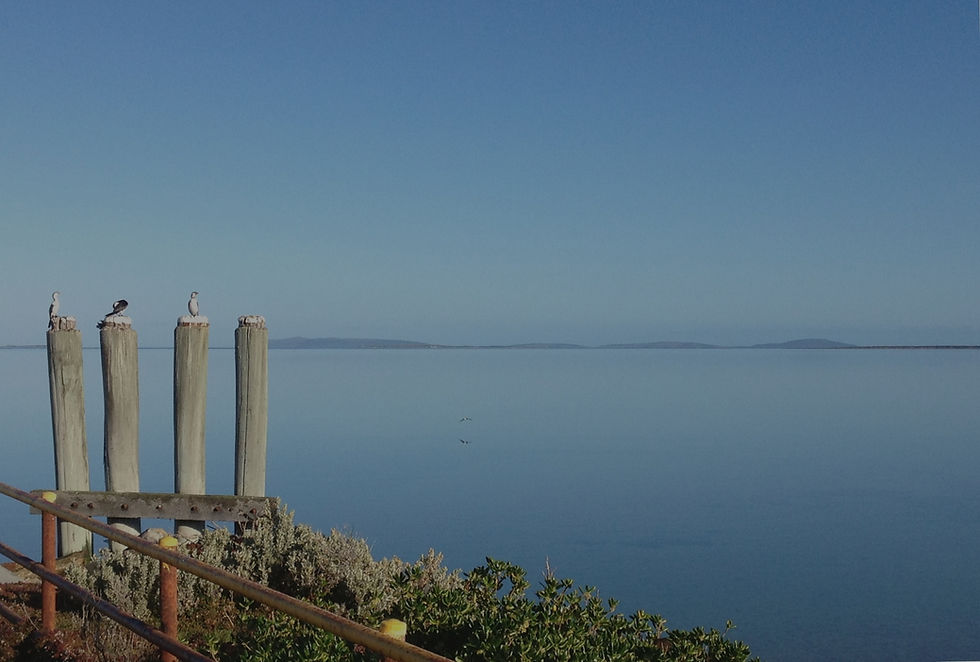
Leading from the Edge
Islands are natural laboratories that provide important insights into the nature of systemic change and innovation.
About the Living Lab
The Islander Way project was a response to a series of trigger points; a sense that overtourism was impacting the social and ecological wellbeing of the Island. However, the challenges ran much deeper. There were several interconnected social, economic and environmental tipping points that had created a fragile context.
Understanding those complex challenges and honouring the Islander Way - a deeply held sense of place, belonging and stewardship - is key to designing a resilient and flourishing future. As a result, the project rapidly expanded beyond tourism to address complex systems change.
The Islander Way journey began with the story of place. The Flinders Island brand story was co-created by Brand Tasmania and the local island communities. It was important as a starting point, because it created a conversation about place, belonging, stewardship, and Island culture.


Triggered by a perception that overtourism would bring irreparable damage to the Island, its environment and way of life, The Islander Way commenced as a 2-year project, in September 2021.
The project was funded by as an election promise by then Premier of Tasmania, and aimed to co-design the future of tourism using a place-based and community-led approach.
The Islander Way has become much more than a tourism project. It's about navigating systems change in times of disruption, building social and economic capacity, environmental stewardship and community connection. While projects end, this has become a journey, based on deep community engagement, economic and social activation, and environmental stewardship.
This is the story of The Islander Way and the issues, challenges, impacts, insights and learnings that are emerging on the journey.
THE QUESTION FLIPPED
Instead of asking "How can we grow tourism?" we flipped the question and asked "How might tourism contribute to a flourishing community, place, and environment?"

FLINDERS
ISLAND

Flinders Island is the social and economic heart of the Furneaux Islands group, an archipelago of more than 52 islands in the Bass Strait.
With approximately 950 residents, Flinders municipality is the smallest local government area in Tasmania. Concern over the long term economic and social sustainability of the Island’s community have been raised.
Flinders Island is also characterised by an extraordinary natural environment and high levels of scenic quality. It was the subject of overtourism during Covid-19 creating impacts on the local population.
REGENERATIVE TOURISM

At its simplest, regeneration is the process of restoring, rebalancing and allowing our social, cultural and environmental assets to re-generate. In the context of tourism, instead of focusing on how we can grow tourism, we ask instead, how can tourism contribute to our social, cultural and environmental wellbeing?
Regenerative Tourism is guided by three ideas:
-
Designing out the negative impacts of tourism that deplete the social, cultural and environmental resources on which tourism is based;
-
Designing in actions that optimise the regenerative potential of resources; and
-
Changing our mindset and systems to adopting a holistic regenerative approach.
COMMUNITY ENGAGEMENT

The aim of our community engagement is to:
-
Explore what regenerative tourism means and co-create the future of tourism on the Island with all stakeholders.
-
Collect information about the community's values and attitudes towards tourism which can be used to inform future decisions and actions
-
Identify and nurture potential ideas and initiatives that will help to build a better relationship between the Islanders and visitors.
The information gathered over the duration of the project will help to identify opportunities to co-design the future, empower local stakeholders, and protect local lifestyles.
Key partners contributing to the funding of this journey include:




